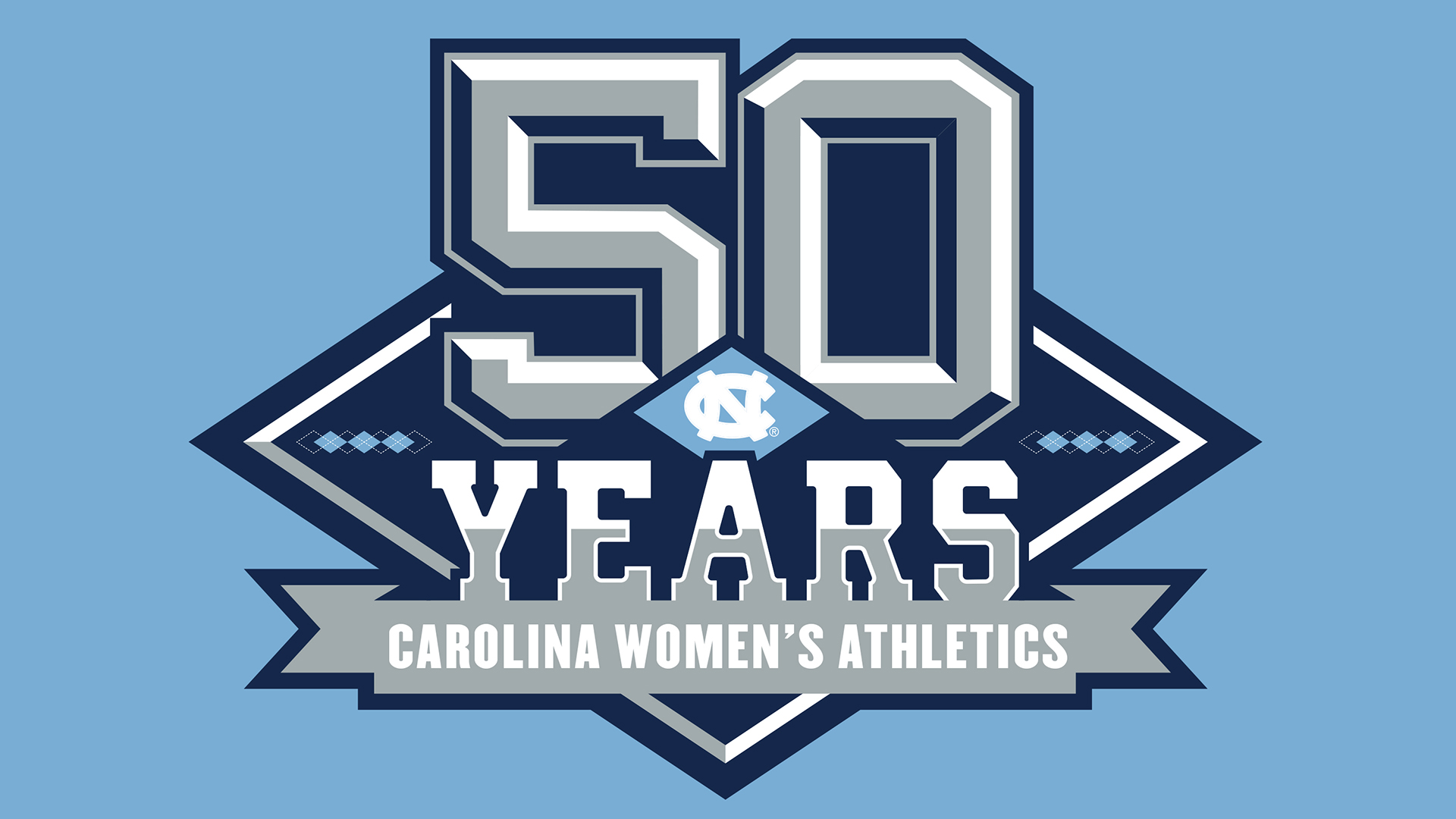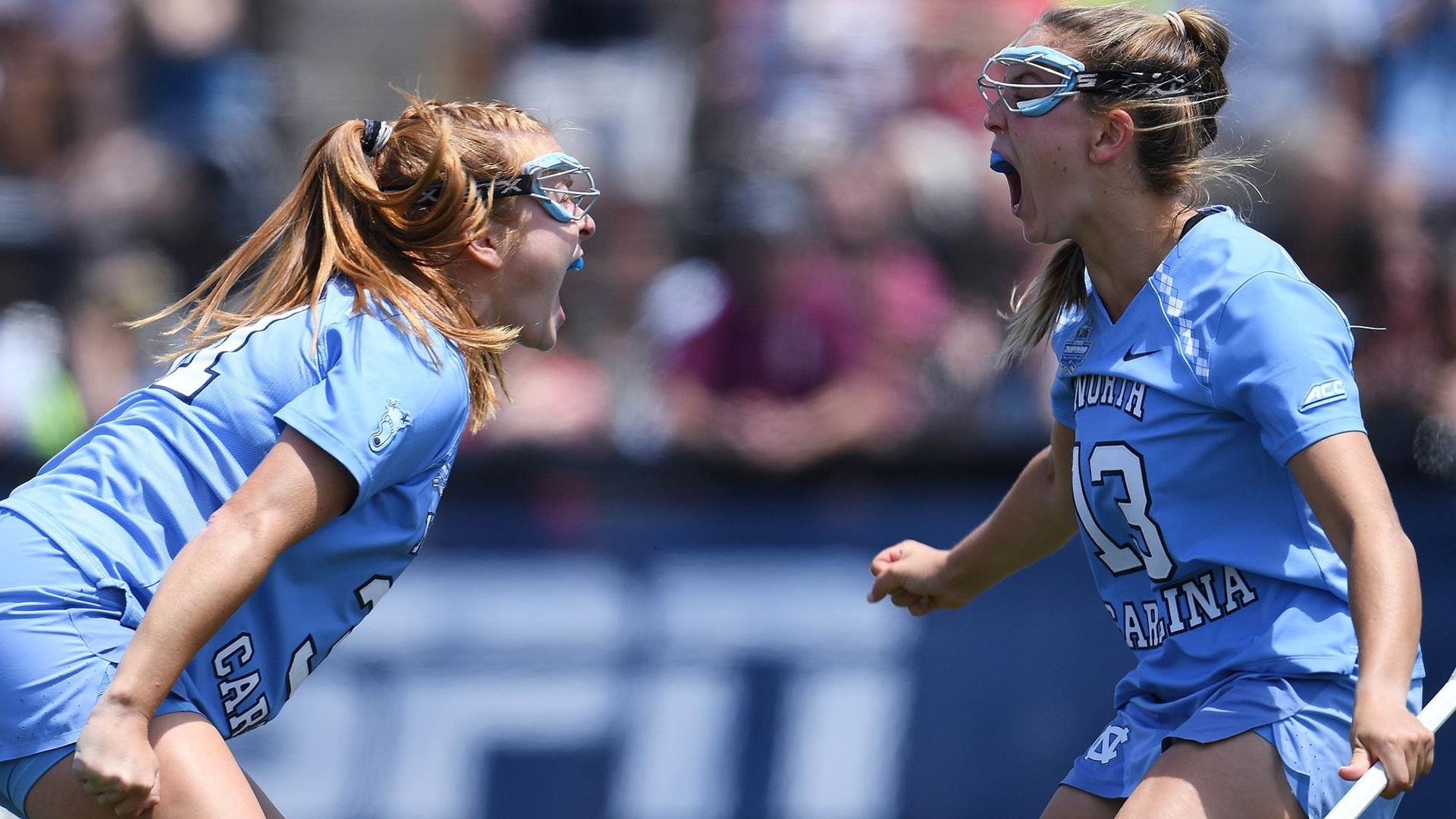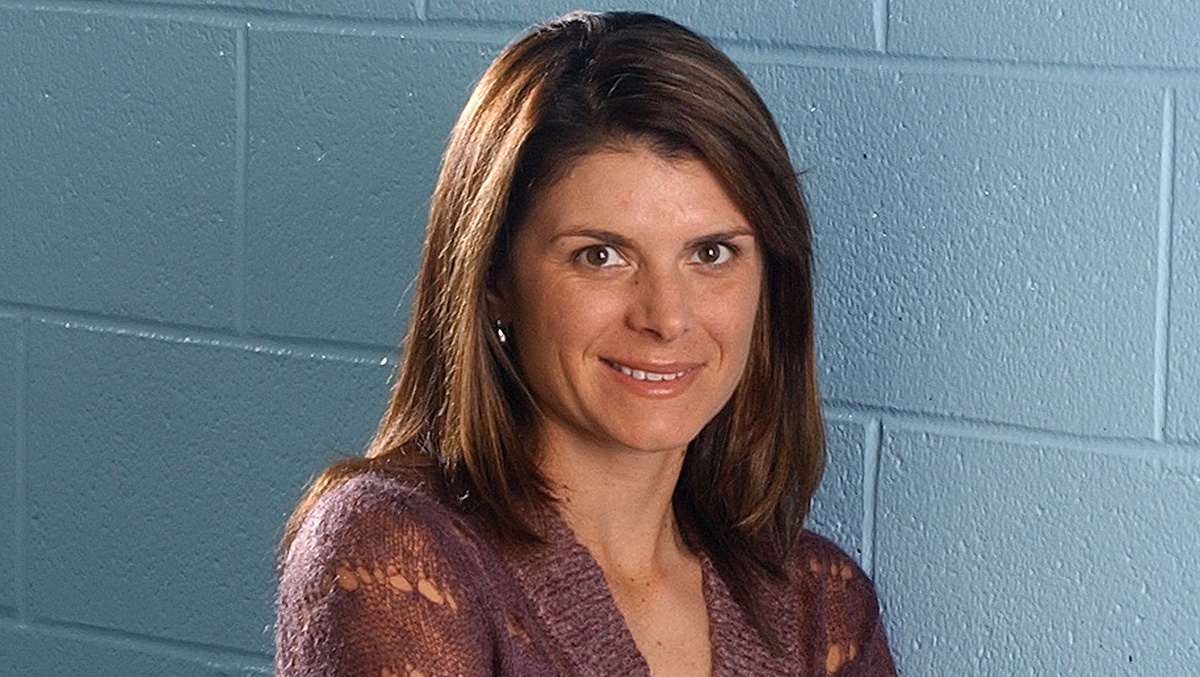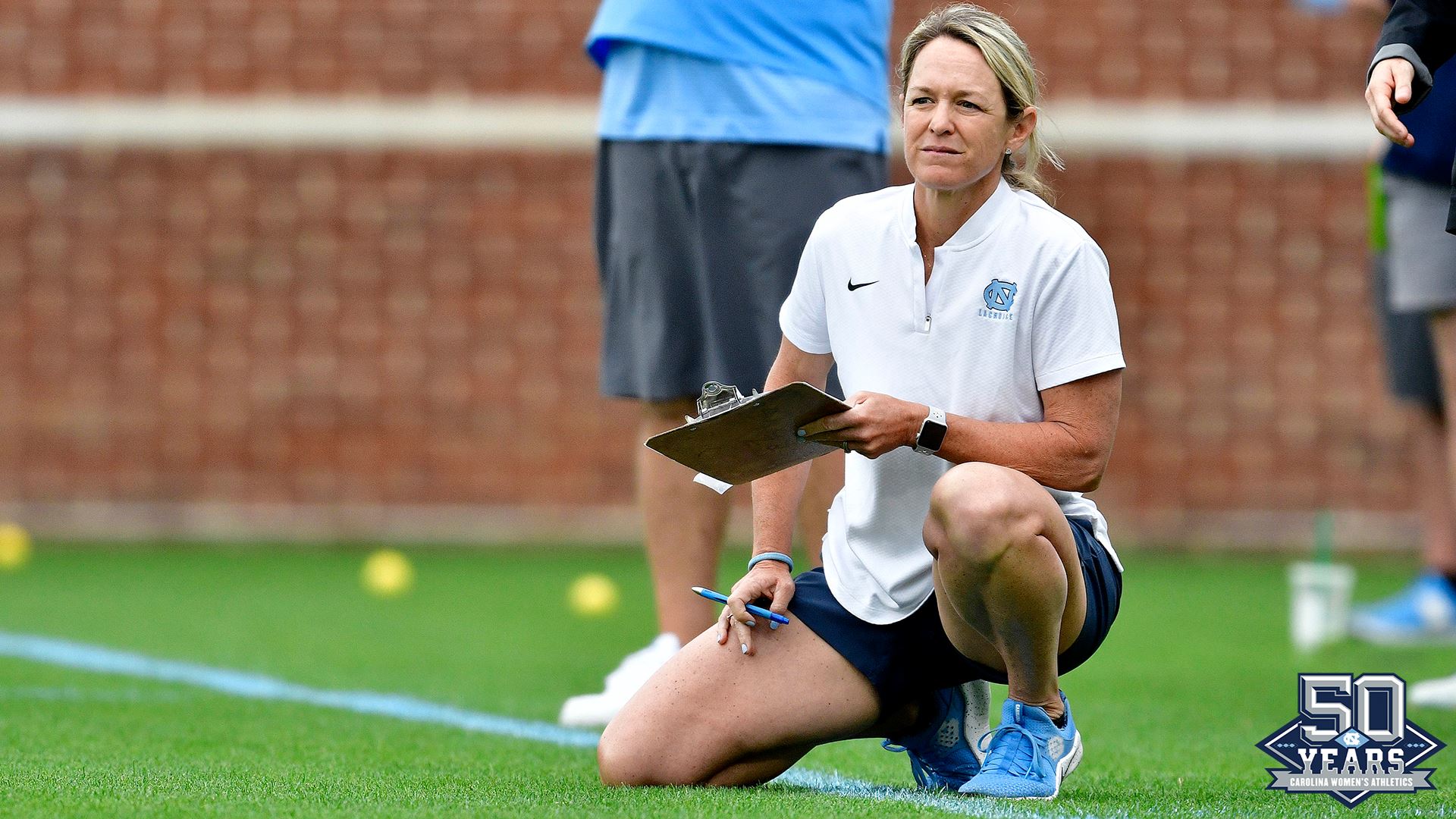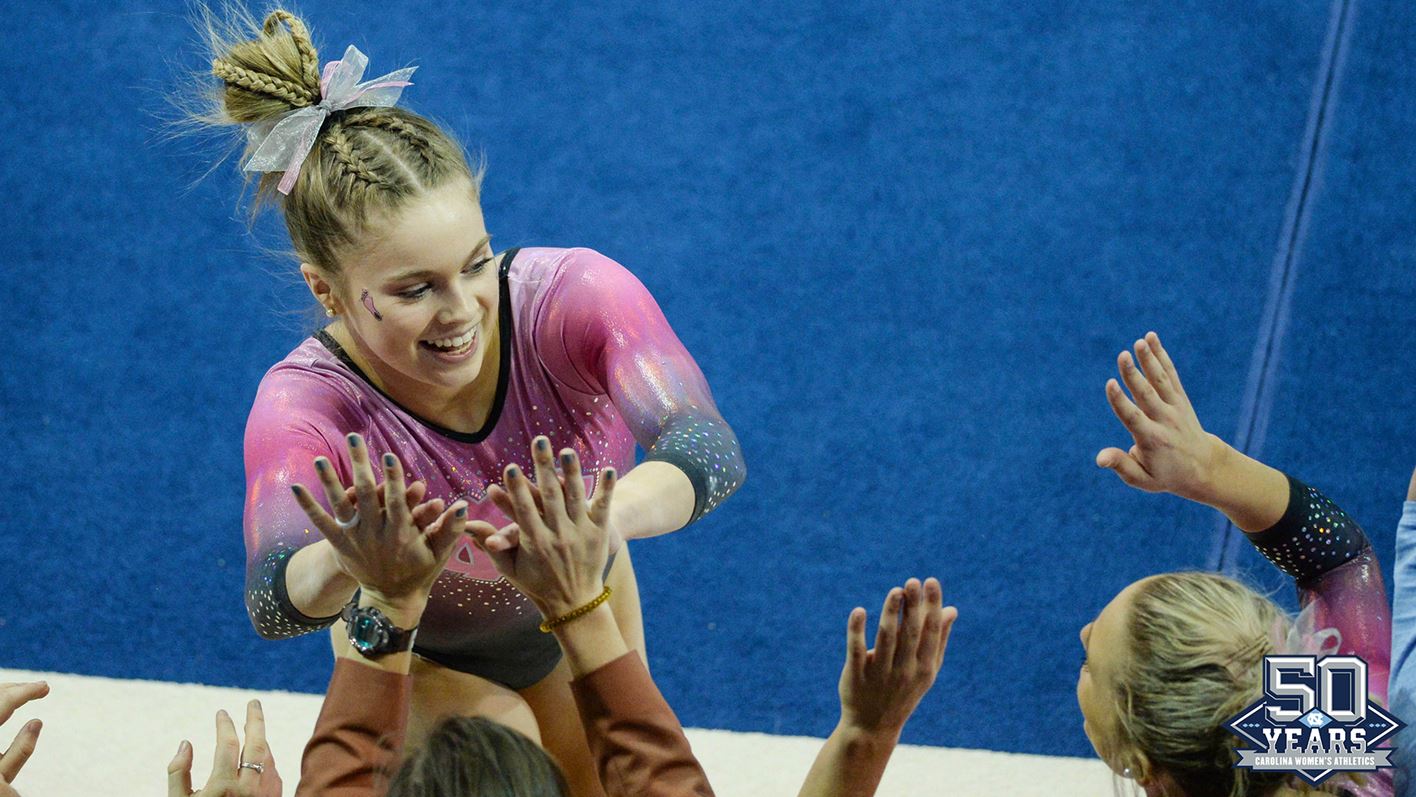50 years of glory: Carolina women’s athletics and Title IX
On the 50th anniversary of Title IX, pioneers of women's athletics at Carolina reflect on five decades of impact and success, which includes 41 team national championships and 41 individual national titles.
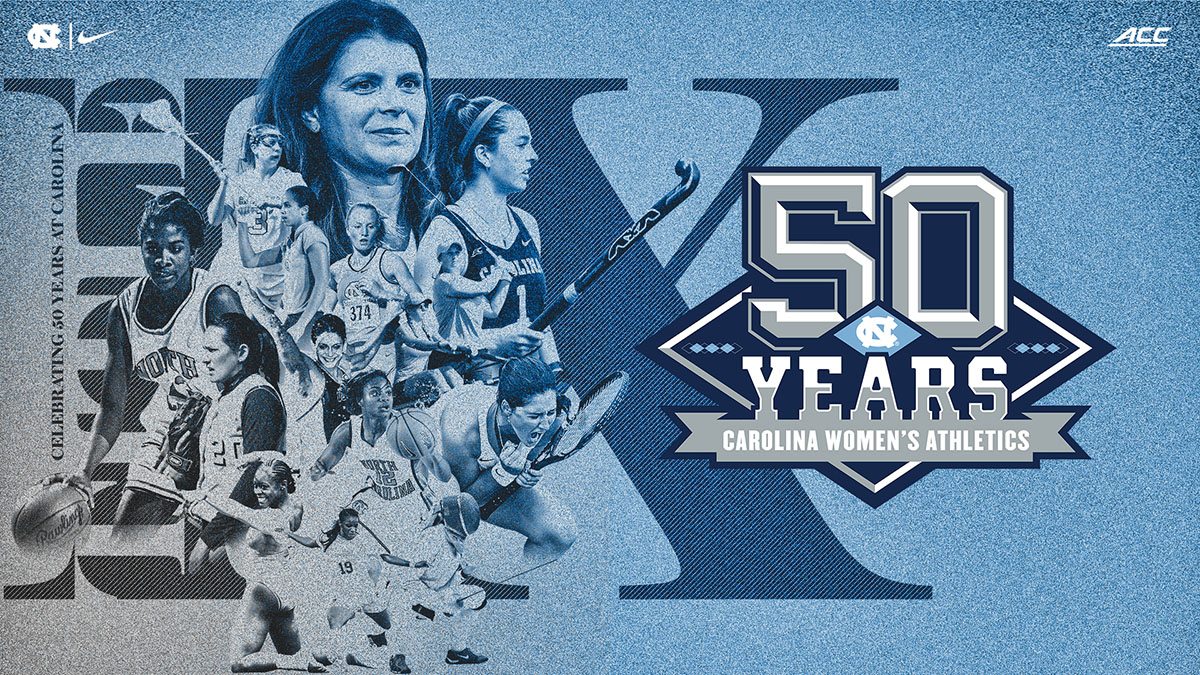
In the mid-1940s, Frances Hogan coached a small club field hockey team that worked out at Kenan Stadium following football and band practices — often facing hecklers from male counterparts on the field. Hogan, a Carolina instructor at the time, never grew flustered, staying strong and focused for more than 30 years with the hope that women would one day have an equal playing field with the men on campus.
In 1971-72, she got her wish. Credited as the “Mother of Women’s Sports at Carolina,” Hogan, the first associate athletics director for women’s sports at Carolina, was the woman behind the genesis of the first seven teams to gain varsity status that year: basketball, field hockey, volleyball, fencing, swimming and diving, tennis and gymnastics.
The following summer, on June 23, 1972, women across the United States were given the opportunity for an equal playing field in higher education with the enactment of Title IX. Those 37 words — “No person in the United States shall, on the basis of sex, be excluded from participation in, be denied the benefits of, or be subjected to discrimination under any education program or activity receiving Federal financial assistance” — especially leveled the playing field for women competing in athletics across the country.
“Because of Title IX, women’s athletics has been transformed,” said Tar Heel hall-of-fame women’s soccer coach Anson Dorrance, whose teams have won 22 national championships. “Back in the old days it was so tough for women to compete at a collegiate level, and now the whole culture is transformed. What’s unique about us is we’re committed to women’s athletics in a very aggressive, powerful and positive way.”
While women started playing organized sports at Carolina as early as 1922, it was only as club teams and intramurals before the 1971-72 season. The women on those early teams were talented and determined, and many wanted to compete at a higher level.
“We’ve worked under disadvantages,” Catherine Boyd, a participant in early women’s club and intramural teams, wrote for Carolina Magazine in 1922, 50 years before the enactment of Title IX. “We hope that the co-eds of the future coming in greater numbers will follow in the footsteps of our brother athletes and bring glory to Carolina.”
Glory began for women’s sports at Carolina, just as Boyd hoped, with Carolina’s first seven women’s varsity programs in 1971-72. Housed under the Department of Physical Education before moving to the Department of Athletics in 1974-75, those teams helped make Carolina a charter member of the Association of Intercollegiate Athletics for Women (AIAW).
Hogan, appointed by then-AD Homer Rice to the associate AD role in 1974, was at the forefront of creating opportunities for young women throughout her lifetime. She spent 30 years of her professional career as a teacher, coach and mentor at Carolina, and she was instrumental in expanding the number of women’s varsity teams to 13 before retiring in 1985.
There were challenges along the way. Field hockey coach Karen Shelton, for example, remembers when her first teams practiced on a small patch of grass where the Dean E. Smith Center now stands. Today, her program, which has won nine national titles, competes in a state-of-the-art facility that bears her name.
“I see how far we’ve come and how well-respected we are on campus,” Shelton said in an interview with Carolina Athletics last fall. “We have people that really want to focus and look at what it is we’re doing and how beneficial it is to our student-athletes. We’ve come a long way, and I’m really proud of that and I am proud to have been a part of this development.”
In all, Carolina’s 15 women’s varsity teams have earned 41 individual national titles, competed in 75 Final Fours and won 28 First-Team Academic All-America honors. In addition, the Tar Heels have won 41 team national championships in women’s sports, the last of which was earned in May by women’s lacrosse, which along with rowing was added as varsity program in the mid-90s.
“When I think about my early years here, I can’t believe how far we’ve come,” said women’s lacrosse coach Jenny Levy, who has led UNC to three NCAA titles. “I had the opportunity to come here because of Title IX. What my office was then, to what it is now really timestamps the changes that we’ve gone through over the years.”
Thanks to pioneers such as Hogan. Her work, bolstered by the movement of Title IX, offered opportunity, education and excellence to thousands of young women in Chapel Hill. By the end of her career, she had blazed a trail for incredible coaches and student-athletes such as Dorrance, Levy, Shelton, soccer icon Mia Hamm and field hockey star Erin Matson.
She also opened doors for remarkable female leaders such as Dr. Beth Miller (named Carolina’s first Senior Woman Administrator in 1981) and Martina Ballen (the Atlantic Coast Conference’s first Black CFO and one of the first females in that role).
“It’s been wonderful to watch the growth of women’s athletics over the years,” said Miller. “From when I first arrived on campus as an assistant professor and coach, to my retirement in 2015, there were so many great moments and achievements for so many student-athletes, administrators and staff that may not have happened without Title IX.”
Miller, who worked for the University for 40 years, was also a pioneer in her time, both for women’s sports at Carolina and nationally—and received the Lifetime Achievement Award from Women Leaders in College Sports in 2018.
“There’s no doubt Title IX made a big difference in women’s athletics,” Hogan, who passed away in 2009 said in an interview in 1991. “I don’t think the budgets would have increased the way they have or the coaching staff [without it]. I tried to think of the things that really have come about because of Title IX.”
Many things have, indeed, “come about” because of Title IX – at Carolina and beyond.
Fifty years later, Hogan undoubtedly would be proud of what Carolina has become, and for the positive spotlight that women’s sports have brought to Carolina.
Learn more about how Title IX is supporting the Carolina community at TheWell.UNC.edu
